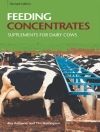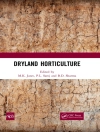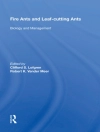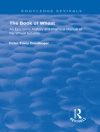OMICs-based Techniques for Global Food Security
Forward-thinking resource discussing how to integrate OMICs and novel genome editing technologies for sustainable crop production
OMICS-based Techniques for Global Food Security provides an in-depth understanding of the mechanisms of OMICs techniques for crop improvement, details how OMICs techniques can contribute to identifying genes and traits with economic benefits, and explains how to develop crop plants with improved yield, quality, and resistance to stresses through genome editing technologies, providing evidence on the developments of climate resilient crops via applications of genome editing techniques throughout.
The text covers the application of OMICs in crop plants, the integration of bioinformatics and multi-OMICs for precision breeding, de-novo domestication, CRISPR/Cas system for crop improvement, hybrid seed production, transgene free breeding, regulation for genome edit crops, bioinformatics and genome editing, and other topics related to OMICs and genome editing.
The text also includes a chapter on global regulations for genome edited crops, and explains how these regulations influence novel plant breeding techniques in their adopted countries.
Edited by two highly qualified academics, OMICs-based Techniques for Global Food Security covers topics such as:
* Crops genome sequencing and their application for crop improvement, and functional characterization of cereal genome
* The role of OMICs-based technologies in plant sciences and utilization of different multi-OMICs approaches for crop improvement
* Genomic database and genetic resource of cereals, speed breeding for rapid crop improvement, and evolution of genome editing technologies
* CRISPR system discovery, history, and future perspective, and CRISPR/Cas system for biotic and abiotic stress resistance in cereals
Providing a collection of recent literature focusing on developments and applications of OMICs-based technologies for crop improvement, OMICs-based Techniques for Global Food Security is an important read for plant breeders, molecular biologists, researchers, postdoctoral fellows, and students in disciplines for developing crops with high yield and nutritional potential.
Giới thiệu về tác giả
Sajid Fiaz, Assistant Professor, Department of Plant Breeding and Genetics, The University of Haripur, Pakistan. Professor Fiaz obtained his Ph D in Crop Genetics and Breeding from the Chinese Academy of Agricultural Sciences, China, in 2019.
Channapatna S. Prakash, Dean, College of Arts and Sciences, Tuskegee University, Kenney Hall, Tuskegee, USA. Professor Prakash has served on the USDA’s Agricultural Biotechnology Advisory Committee and the Advisory Committee for the Department of Biotechnology for the Government of India.












